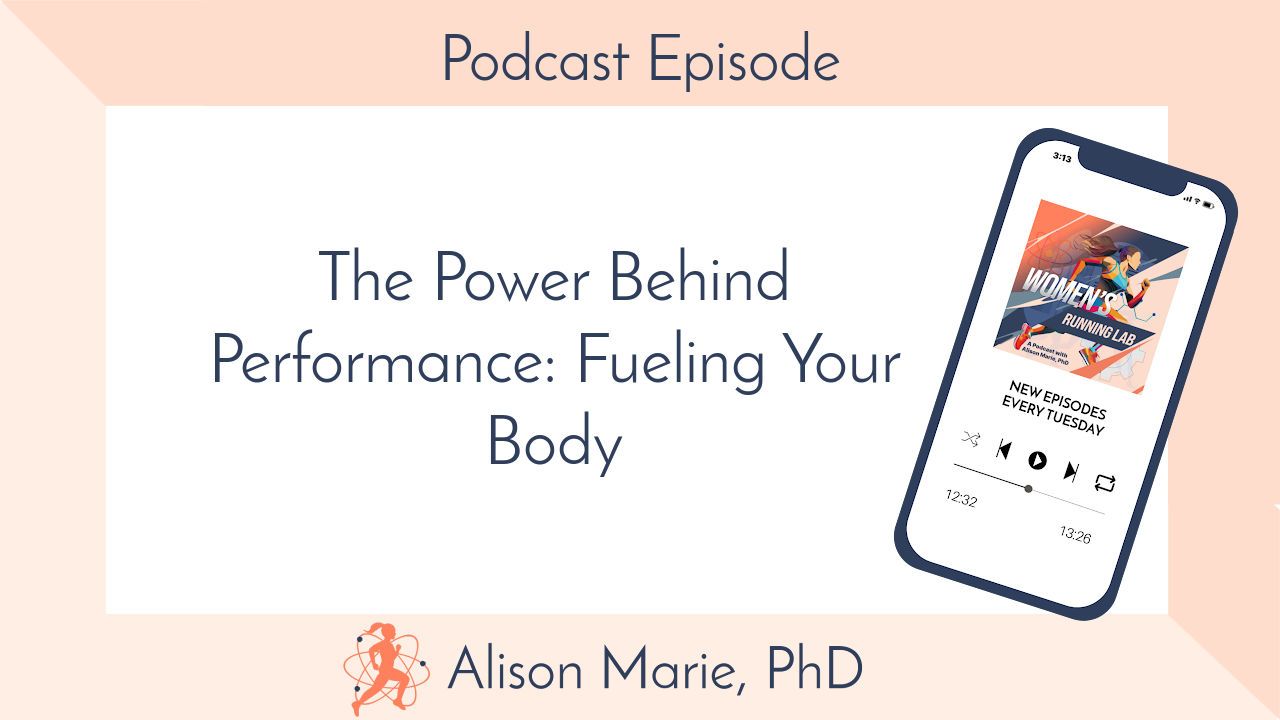
Episode 21 - Fueling for Success: The Best Fuel for Running and How It Impacts Performance
Jan 07, 2025Episode Summary:
In this episode, Alison explains that impatience and under-fueling are two key predictors of injury that she frequently observes in runners. She emphasizes the importance of being patient in the training process and fueling properly for performance and recovery. She shares her own struggles with fueling, particularly as a coach who recognizes the impact of under-fueling, and mentions a recent study linking low energy availability (LEA) to poor race performance, injury, and illness. Alison emphasizes that regular, daily calorie intake supports energy for training, recovery, and daily activities, and how fueling strategies should be adapted based on the intensity of training. Key points include the necessity of carbohydrates before, during, and after runs, as well as the importance of fueling every day, not just on hard training days. Additionally, she discusses the concept of the "athlete plate" and how athletes should progressively increase carbohydrate intake to support their energy needs throughout training and recovery.
Key Takeaways:
- Regular Daily Fueling: Daily nutrition, including adequate calorie intake, is crucial for building glycogen stores in muscles, liver, and blood to support training, recovery, and daily activities. Simply focusing on pre- and post-run nutrition isn't enough if daily fueling is insufficient.
- Carbohydrate Intake: Carbs are the primary energy source for athletes, especially during intense training. Athletes should aim to get up to 50% of their calories from carbs during periods of heavy training, adjusting carbohydrate intake based on training intensity and volume.
- Athlete Plate Model: The model categorizes training into easy, moderate, and hard sessions, with corresponding changes in diet. Regardless of training intensity, athletes should prioritize consistent fueling with protein, fruits, vegetables, and carbs to sustain energy and recovery.
- Pre-Run Nutrition: Eating before a run is essential, especially for runs longer than 45 minutes. Pre-run meals should focus on easily digestible carbohydrates, with the ideal amount being 30 grams of simple carbs consumed about an hour before running.
- Post-Run Refueling: After a run, refueling with a combination of carbs and protein (in a 3:1 ratio) is important for muscle recovery. A good example is consuming 20-25 grams of carbs, along with fluids, such as chocolate milk, to start the muscle repair process.
Time Stamps:
[00:00] - Introduction to Fueling and Glycogen
[06:30] - The Athlete Plate Model and Energy Needs
[14:00] - Calories as Energy and Mindset Shifts
[20:30] - Pre-Run Nutrition
[26:30] - During-Run Nutrition and Refueling
[28:30] - Post-Run Recovery and Affirmations
Resources Mentioned:
- Strong & Stable: The Ultimate Hip Strengthening Program for Female Runners: https://www.alisonmariephd.com/strong-and-stable
- Research Study Mentioned: https://bjsm.bmj.com/content/early/2024/11/11/bjsports-2024-108181
- Favorite Instagram Accounts:
Quotes:
- "We need to start looking at calories as the energy needed to move your body in your workouts, move your body in your daily life, use your brain, recover from your workouts."
- "It takes time. Allowing your body to adapt to the demands of training takes time."
Follow Along Between Episodes on Instagram and if you enjoyed this episode please give a share and tag me in your stories!
Don't miss a thing!
Join my newsletter, be the first to know about what's coming up, and get even more great content!

